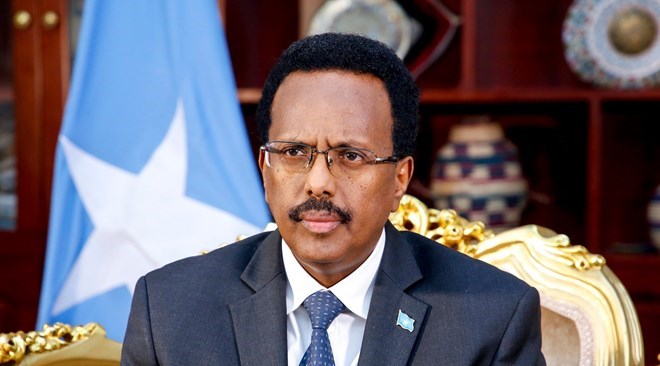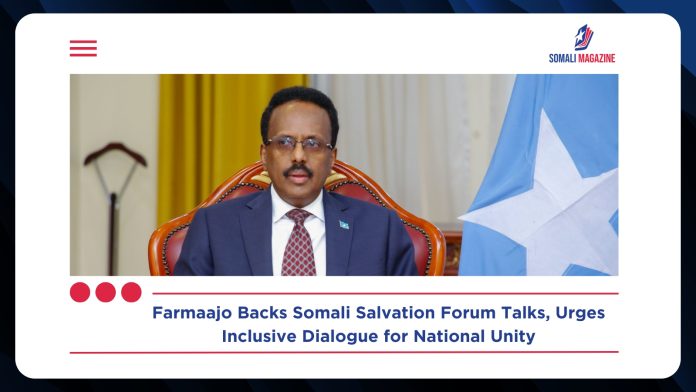Facebook Twitter (X) Instagram Somali Magazine - People's Magazine
Farmaajo welcomes Somali Salvation Forum talks between President Hassan Sheikh Mohamud and opposition leaders, describing the meeting as a vital step toward resolving Somalia’s deep-rooted political rifts. In a statement issued Thursday, former President Mohamed Abdullahi Farmaajo praised the dialogue as a “constructive beginning” and urged the current administration to ensure inclusivity, particularly the participation of Puntland and Jubaland in upcoming national consultations.
The meeting, held in Mogadishu earlier this week, brought together President Mohamud and members of the Somali Salvation Forum—a coalition of opposition figures critical of the government’s handling of constitutional reforms, federalism, and the electoral process. Farmaajo, who governed Somalia from 2017 to 2022, said the talks could pave the way for a more unified and stable political future if handled with transparency and respect for the 2012 Provisional Constitution.
“These are issues of national destiny and must take precedence,” Farmaajo stated. “We welcome President Hassan Sheikh Mohamud’s willingness to place these matters at the center of national dialogue.” He emphasized that the 2012 constitution, adopted through broad consensus, should remain the foundation for any negotiations and decisions concerning Somalia’s political direction.
Farmaajo also called on the president to fulfill his constitutional duty as a unifying figure by personally ensuring the participation of all federal member states in the upcoming National Consultative Conference scheduled for July 3. “Inclusivity is vital for any meaningful political progress,” he said. “The president must take direct responsibility and extend formal invitations to the leaders of Puntland and Jubaland to join the dialogue.”
The absence of Puntland and Jubaland from recent federal-level forums has raised concerns about the legitimacy and effectiveness of national consultations. Both states have previously accused the federal government of unilateral decision-making and sidelining regional voices in critical national matters. Farmaajo echoed these concerns, warning that excluding key stakeholders would only deepen mistrust and hinder Somalia’s democratic transition.

The National Consultative Conference is expected to address long-standing disagreements on governance, federalism, and Somalia’s transition to direct elections. The current administration has pledged to move away from the clan-based indirect voting system and implement a one-person, one-vote model by 2026. However, opposition leaders argue that the process must be grounded in consensus and constitutional legality.
Farmaajo’s statement also criticized what he described as the presidency’s unilateral moves, including the rejection of the very constitution under which President Mohamud was elected and the formulation of electoral laws without broad consultation. He urged the government to rebuild trust by engaging all political actors and respecting the frameworks that have guided Somalia’s fragile progress over the past decade.
Civil society groups and international observers have welcomed the renewed dialogue, viewing it as a potential turning point in Somalia’s political trajectory. However, they caution that the success of the talks will depend on the government’s willingness to accommodate dissenting voices and commit to genuine power-sharing.
As the July 3 summit approaches, all eyes are on Villa Somalia to see whether the president will heed calls for inclusivity and transparency. Farmaajo’s endorsement of the talks, coupled with his insistence on broader participation, adds pressure on the administration to deliver a process that reflects the aspirations of all Somalis.

